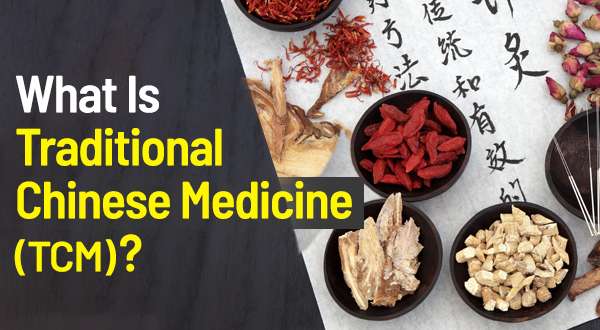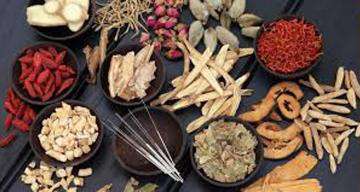Traditional Chinese Medicine (TCM) is all about balance–energy balance. Whether you visit a Western or an Eastern practitioner for fatigue, you’re likely to get the same advice: Incorporate more balance into your life.
TCM will provide you with various tools for achieving balance. If you experience fatigue with no known medical reason, you might want to consider trying Chinese medicine that address the root causes of this condition, not just the symptoms.

TCM and the Body’s Energy System
Western medicine views the body as a set of cells that perform specific functions and disease as a problem with cellular function. TCM takes a different view of the human body, in which the body emerges as system of energy, called “qi”. Qi runs through and around the body via paths called “meridians.” Generally speaking, qi consists of two main complementary energy forces: yin and yang.
- Yin energy is slow and cold. Yin derives from quiet activities like resting, meditation, and deep breathing.
- Yang energy is fast and hot. Yang energy comes from challenging physical and mental activities, such as exercise, concentrated effort, and external forces that cause stress.
According to TCM, fatigue can arise when the body’s energy flow becomes imbalanced, such as hyper-driving yang without nurturing yin. The goal of TCM is to restore or rebalance energy by treating the source of the problem in order to keep fatigue at bay for good. Here are five approaches:


1. Acupuncture
In this well-known TCM practice, an acupuncturist inserts thin needles into the skin at specific points in the body’s energy field. The stimulation of these points helps to regain balance in the various body systems. Acupuncture can rapidly increase the body’s energy and help you feel better relatively quickly.
2. Dietary Changes
Diet and proper digestion play a key role in TCM.
Regarding fatigue, TCM suggests many foods to eat and those to avoid. For example, abstaining from alcohol, reducing sugar intake, and consuming fewer cold or processed foods, can help with energy as these can all cause tiredness. To help replenish yin energy and combat fatigue, eat and drink warm, nourishing foods and beverages.


3. Herbal Support
Most medications began as plant teas, poultices, and pills. Only in the modern era have scientists been able to work directly with chemical compounds to create what we know today as drugs. TCM uses a variety of traditional herbal supplements to help reduce fatigue and increase energy. Herbs such as ginseng root or sweet wormwood may aid in fatigue treatment. You should consult a TCM practitioner before using herbs because some of them can interact with prescription medications.
4. Qigong Practices
Tai chi is just one of the many forms of qigong that’s popular today. Qigong represents a variety of practices that enhance yin energy. Qigong practices aim to align fluid movement with mindful breathing and meditation. In concert, these activities help balance qi energy to help restore energy and reduce fatigue. Your TCM practitioner can help you locate qigong resources, such as tai chi classes, or may teach you some basic qigong movements you can perform at home. Engaging in qigong daily may help you feel more relaxed and energized.


5. Rest
Yes, it’s really that simple. You need to prioritize rest in order to cultivate yin energy. TCM takes this concept a step further by advocating you engage in mindful (or aware) restfulness each day. This practice may take the form of meditation, quiet reading, or even just sitting still outdoors to enjoy nature. It is of key importance in both western medicine and Chinese medicine to ensure you get adequate sleep for optimal health and energy.
TCM to Treat the Source of Fatigue
Unfortunately, neither Western medicine nor TCM yet possesses a magic bullet to cure fatigue, except where there is a clearly identifiable cause, such as anemia or hypothyroidism. In fact, there’s no randomized, double-blind controlled study that confirms the efficacy of any specific treatment for fatigue. Perhaps that’s why many people look to complementary therapies for help.
TCM aims to treat the source of fatigue, not merely the symptoms of it. Anyone can consume an extra cup of coffee or energy drinks each day. Not only will that approach not solve your fatigue issues, over the long run, it will make them worse. Approaches like acupuncture, mindfulness, dietary changes, and qigong practices, on the other hand, may put your fatigue to rest for good.

